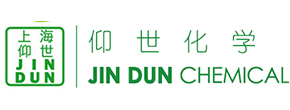Chemical distribution industry embraces AI
2023/7/11
Determining Changes in Demand
Uniwill, the world's third-largest chemical distributor, has introduced AI-driven technology that can help the company identify, measure and forecast demand patterns.
AI can be used to identify correlations between weather events, supply and ordering patterns, Uniwill said. In recent years, the U.S. Gulf Coast and inland areas have suffered damage from various weather events, such as Polar Storm 2021 and Hurricane Ida. During the polar storm, chemical production in the U.S. Gulf of Mexico came to a near standstill, putting the supply chain under tremendous pressure. Demand from downstream industries spiked as companies attempted to build inventories in the face of disrupted logistics and raw material supplies. The resulting shortages and price spikes wreaked havoc on the supply chain in the months that followed.
Univill says that developing early warning systems that monitor the impact of weather on demand can better prepare for market impacts caused by weather events and other events. Univill's artificial intelligence analyzes the different predicted paths of hurricanes so the company can develop contingency plans. Customers are also watching and preparing for weather events so the company can see a surge in demand for key products before they happen. Steve Martinez, Vice President for Digital Solutions at Univision, said, "With AI, we have the ability to predict demand so we can more efficiently place products where they are needed. Our algorithms allow us to anticipate spikes in demand due to natural events or overproduction, which allows us to move inventory to where it is needed."
In addition to understanding demand, Univier uses AI to understand and evaluate customer reordering behavior. Notifications are generated if customers deviate from their usual ordering patterns, as well as suggestions for new product availability based on current buying patterns.
Improving Logistics Efficiency
Market participants believe that chemical producers and distributors can also use AI to improve the efficiency of their own logistics operations and reduce the carbon emissions caused by the company's logistics processes. For most chemical producers and distributors, the vast majority of emissions generated in the course of manufacturing or selling their products fall into the third category, indirect emissions from upstream and downstream in the supply chain. Measuring these emissions is extremely complex, especially since the chemical industry lacks a harmonized methodology for measuring carbon emissions similar to international accounting standards.
In the same way that public transportation emits far less carbon per unit than private cars, fully loaded trucks and train cars emit less carbon per unit than half-empty trucks and train cars. However, it is difficult for chemical companies to control the details of raw material and product transportation, and empty vehicles are bound to occur, and scheduling these loads is very difficult. Uniwill says it is using AI to help with order mixing to get shipments to the right location using the least carbon-emitting mode of transportation. Martinez said, "AI allows companies to optimize transportation routes. It's complicated because there are a lot of variables, such as customer docking times at terminals and terminal congestion, and sorting through the variables is where AI comes in."
Univir's competitor, Brenntag, is also using data from Carbon Minds. It's a company that provides process- and location-specific carbon footprint data and can now offer customers AI products with carbon content assessments.
Reducing paperwork
Another advantage of AI is that it can replace some of the written work and speed up efficiency. In this regard, there is also a notable need in the chemical industry.
Uniwill says that the company is now using AI to reduce text work. For example, when it comes to reviewing new customers, which used to be a months-long process, even with the web and software to fall back on, there is still a need for a manual approach to business validation and pricing. The process could require multiple exchanges of PDFs, emails and phone calls. Today, with the help of artificial intelligence, this process is expected to be reduced to minutes.
In the past, Uniwell has revolutionized the traditional process of requesting quotes, which required constant requests for information and a great deal of information. Today, Uniwill allows new customers to purchase directly without waiting for verification. The buying process generates a lot of information about the customer, which can be verified through an AI online search. Martinez said, "AI allows us to create an online price. We're the first company to have open pricing in chemical distribution, which is very useful for attracting new customers that you're not ready for. Artificial intelligence helps us allocate safety stock for these new and unknown customers."
On the recipe lookup side, Univir has launched a recipe finder. This finder can use machine learning to read through the company's thousands of PDFs and provide the formulas they contain. Previously, Uniwill's employees had to work individually with customers to solve their formulation needs. With this new system, all of the company's files are instantly searchable. We develop formulas with our customers all over the world," says Martinez. These are in PDF format, so now we use artificial intelligence to read all the information, understand the correlation between chemicals, and generate new formulations as needed."
JIN DUN CHEMICAL has built a special (meth) acrylic monomer manufacturing base in ZHEJIANG province. This makes sure the stable supply of HEMA, HPMA, HEA, HPA, GMA with high level quality. Our special acrylate monomers are widely used for thermosetting acrylic resins, crosslinkable emulsion polymers, acrylate anaerobic adhesive, two-component acrylate adhesive, solvent acrylate adhesive, emulsion acrylate adhesive, paper finishing agent and painting acrylic resins in adhesive.We have also developed the new and special (meth) acrylic monomers and derivatives. Such as the fluorinated acrylate monomers, It can be widely used in coating leveling agent, paints, inks, photosensitive resins, optical materials, fiber treatment, modifier for plastic or rubber field. We are aiming to be the top supplier in the field of special acrylate monomers, to share our rich experience with better quality products and professional service.

